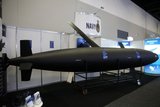Netanyahu quizzed as submarine graft probe witness
Israeli Prime Minister Benjamin Netanyahu was on 12 June questioned as a police witness in a probe of alleged corruption over the state purchase of three German submarines, his office said.
Netanyahu is the subject of several corruption investigations, but he is not under suspicion in the submarine affair, known as Case 3000.
Netanyahu’s office said in a statement: ‘The Prime Minister gave his testimony in Case 3000. He has given all the details that led to his professional decisions on the matter of the submarines, while explaining their importance for state security.’
The statement said Netanyahu was delighted to ‘put an end once and for all to false claims spread by politicians’ that he acted improperly in the affair.
It is the first time Netanyahu has given oral evidence on the matter, and he reportedly spent several hours answering questions.
The case centres on alleged corruption surrounding Germany's sale to Israel of three submarines manufactured by industrial giant ThyssenKrupp.
Two associates of the Prime Minister have been questioned several times in the past few months by police heading the investigation.
The German submarines ordered by Israel could be equipped with nuclear missiles and deployed for spying missions off the coast of Iran, where they could be used in the event of a war between the two countries, according to foreign military experts.
Separately, Netanyahu is the subject of two investigations in which the police on 13 February 2018 recommended he be indicted.
In one case, he and family members are suspected of receiving $285,000 worth of luxury cigars, champagne and jewellery from wealthy personalities in exchange for financial or personal favours.
In the other case, investigators suspect the premier of trying to reach an agreement with the owner of Yediot Aharonot, a top Israeli newspaper, for more favourable coverage.
Netanyahu has protested his innocence and vowed to remain in power, saying he is the victim of a ‘witch-hunt’.
He also faces suspicions of government favours that allegedly saw regulatory breaks go to Israel's largest telecom firm Bezeq, in return for favourable coverage of him and his wife by a news website.
Despite his troubles, opinion polls indicate Netanyahu and his right-wing Likud party would still be the largest party if elections scheduled for November 2019 were held now.
More from Naval Warfare
-
![How the Golden Fleet will change the US Navy acquisition process]()
How the Golden Fleet will change the US Navy acquisition process
The procurement of the future USN Golden Fleet is planned to be less bureaucratic than previous strategies, involving AI-enabled designs and scheduling tools to increase productivity and avoid delays.
-
![What capabilities are being tested under AUKUS Pillar II?]()
What capabilities are being tested under AUKUS Pillar II?
Collaboration on AUKUS Pillar II extends beyond the core trilateral agreement, presenting global opportunities for companies with advanced technologies.
-
![Australia signs US$2.8 billion ship deal with Austal but puts pressure on company to deliver]()
Australia signs US$2.8 billion ship deal with Austal but puts pressure on company to deliver
The A$4 billion Landing Craft Heavy contract for Austal follows on from a A$1 billion deal in December for Landing Craft Medium ships, but the Australian government has made it clear that a contract for Mogami frigates is reliant on the success of these two contracts.
-
![Turkey targets Italian market with strategic partnership on USVs and hybrid platforms]()
Turkey targets Italian market with strategic partnership on USVs and hybrid platforms
Havelsan, VN Maritime and Piloda Defence will collaborate to develop and integrate a range of maritime solutions with a view to secure a first procurement contract in Italy in the first half of this year.






















